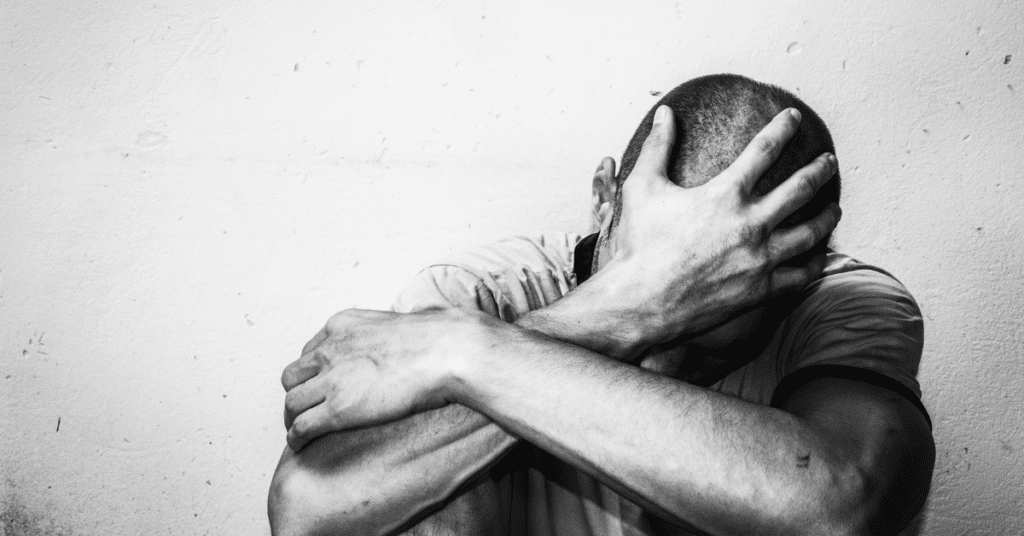The Nation is in the midst of an unprecedented opioid epidemic. More than 130 people a day die from opioid-related drug overdoses.
Opioid Addiction Crisis
Prevention and access to treatment for opioid addiction and overdose reversal drugs are critical to fighting the opioid addiction epidemic. Primary care settings have increasingly become a gateway to better care for individuals with both behavioral health (including substance use) and primary care needs.
In 2019, nearly 50,000 people in the United States died from opioid-involved overdoses. The misuse of and addiction to opioids—including prescription pain relievers, heroin, and synthetic opioids such as fentanyl—is a serious national crisis that affects public health as well as social and economic welfare. The Centers for Disease Control and Prevention estimates that the total “economic burden” of prescription opioid addiction alone in the United States is $78.5 billion a year, including the costs of healthcare, lost productivity, addiction treatment, and criminal justice involvement.

Get Your Life Back
Find Hope & Recovery. Get Safe Comfortable Detox, Addiction Rehab & Dual Diagnosis High-Quality Care.
Hotline(844) 597-1011What Do We Know About the Opioid Epidemic?
- Roughly 21 to 29% of patients prescribed opioids for chronic pain misuse them.
- Between 8 and 12% of people using an opioid for chronic pain develop an opioid use disorder.
- An estimated 4 to 6% who misuse prescription opioids transition to heroin.
- About 80% of people who use heroin first misused prescription opioids.
- Update: Among 38 states with prescription opioid overdose death data, 17 states saw a decline between 2017-2018; none experienced a significant increase. [1]

The likelihood of developing an opioid use disorder depends on many factors, including the length of time a person is prescribed to take opioids for acute pain, and the length of time that people continue taking opioids (whether as prescribed or misused).
Get Help. Get Better. Get Your Life Back.
Searching for Accredited Drug and Alcohol Rehab Centers Near You?
Even if you have failed previously and relapsed, or are in the middle of a difficult crisis, we stand ready to support you. Our trusted behavioral health specialists will not give up on you. When you feel ready or just want someone to speak to about therapy alternatives to change your life call us. Even if we cannot assist you, we will lead you to wherever you can get support. There is no obligation. Call our hotline today.
(844) 597-1011What is the Opioid Crisis
In the late 1990s, pharmaceutical companies reassured the medical community that patients would not become addicted to prescription opioid pain relievers, and healthcare providers began to prescribe them at greater rates. This subsequently led to widespread diversion and misuse of these medications before it became clear that these medications could indeed be highly addictive.
Opioid overdose rates began to increase. In 2017, more than 47,000 Americans died as a result of an opioid overdose, including prescription opioids, heroin, and illicitly manufactured fentanyl, a powerful synthetic opioid. That same year, an estimated 1.7 million people in the United States suffered from substance use disorders related to prescription opioid pain relievers, and 652,000 suffered from a heroin use disorder (not mutually exclusive).

Opiates are natural opioids such as heroin, morphine, and codeine. Generally, opioid pain relievers are safe when taken for a short time and as prescribed by a doctor. However, users abuse them due to the euphoria they produce in addition to pain relief. As a result, substance abuse happens when you take it in a different way or in a larger quantity than prescribed or taken without a doctor’s prescription. Substance abuse with this drug can be best medicated in an inpatient program that is accordingly dedicated to opioid addiction treatment.
To clarify, the regular use of opiates—even as prescribed by a doctor—can lead to dependence as well. And when misused, opioid pain relievers can lead to addiction, overdose incidents, and deaths. [2]
Without awareness, a person may become addicted to prescription opioids that were given to them for a medical condition. Consequently, they will start using opiate drugs intentionally for the high the drugs can provide. Opiates’ effects on the brain are strong as they can deplete certain chemicals with continued abuse. Classic signs of opioid addiction can be eventually, your brain will become dependent on opioids to function normally, then, you will start needing more opioids just to ward off withdrawal and feel “normal.”
First-class Facilities & Amenities
World-class High-Quality Addiction & Mental Health Rehabilitation Treatment
Rehab Centers TourRenowned Addiction Centers. Serene Private Facilities. Inpatient rehab programs vary.
Addiction Helpline(844) 597-1011Proven recovery success experience, backed by a Team w/ History of:
15+
Years of Unified Experience
100s
5-Star Reviews Across Our Centers
10K
Recovery Success Stories Across Our Network
- Low Patient to Therapist Ratio
- Onsite Medical Detox Center
- Comprehensive Dual-Diagnosis Treatment
- Complimentary Family & Alumni Programs
- Coaching, Recovery & Personal Development Events
Cascade of Care Model
Amid worsening opioid overdose death rates, the nation continues to face a persistent addiction treatment gap limiting access to quality care for opioid use disorder (OUD). Three FDA-approved Opioid addiction treatment medications of methadone, buprenorphine, and extended-release naltrexone have high-quality evidence demonstrating reductions in drug use and overdose events, but most individuals with OUD do not receive them. The development of a unified public health framework such as a Cascade of Care could improve system-level practice and treatment outcomes. [3]
A team of National Institute on Drug Abuse-funded scientists has offered a critical look at how to build an improved framework of care for the identification and treatment of people with opioid use disorder (OUD). The OUD Cascade of Care model encompasses four interrelated domains regarding all persons with OUD or at risk for developing OUD: Prevention, Identification, Treatment, and Recovery.

Building upon the successful Cascade of Care model developed in 2017 to manage patients with HIV and AIDS, the study authors lay out a plan to expand OUD prevention and care at the state and federal levels, while customizing services to fit the unique needs of individuals and their communities. The authors recommend a framework that encompasses four interrelated domains: prevention, identification, treatment, and recovery. People at varying stages of risk and need reside at various points within that cascading framework. [4]
A broad, national OUD Cascade of Care framework consistently applied across states could provide a structural model to help communities identify which population group needs what kind of intervention. Identifying the challenges encountered by patients at each stage of the Cascade can target clinical and policy interventions at federal and state levels to improve treatment outcomes and reduce related diseases and deaths.
Organizing efforts to respond to the opioid epidemic around an opioid use disorder (OUD) Cascade of Care framework could improve outcomes and reduce mortality. Increasingly, NIDA and the CDC are suggesting this framework as it can be applied to track progress at the individual patient level or to assess population-level outcomes.
Adoption of an OUD Cascade of Care offers opportunities to enhance outcomes through improved treatment program accreditation standards, data collection and reporting, and monitoring of key clinical targets. Developing quality measures to identify which patients struggle at which stages of the Cascade could also help target clinical and policy interventions aimed at improving patient outcomes.
World-class, Accredited, 5-Star Reviewed, Effective Addiction & Mental Health Programs. Complete Behavioral Health Inpatient Rehab, Detox plus Co-occuring Disorders Therapy.
CALL(844) 597-1011End the Addiction Pain. End the Emotional Rollercoaster. Get Your Life Back. Start Drug, Alcohol & Dual Diagnosis Mental Health Treatment Now. Get Free No-obligation Guidance by Substance Abuse Specialists Who Understand Addiction & Mental Health Recovery & Know How to Help.
Opioid Addiction Treatment
Using drugs for a prolonged period takes a significant toll on the neurochemical makeup of the brain. Once you developed physical dependency and addiction, it is no longer a matter of your willpower versus a drug. Instead, it is an ongoing journey of modifying deeply rooted behaviors closely wired to our psychological triggers.
Relapse is a fairly common occurrence during the recovery process. The types of treatment used for substance abuse can also play a role in the likelihood of relapse. Typically, addiction treatment first involves some medical intervention followed by ongoing behavioral therapy or counseling. Undergoing addiction treatment, a person will learn healthy ways of coping with stress and anxiety and see how it fuels their addiction if left unchecked. Healthy coping mechanisms and learning how to spot impulsivity will help prevent a relapse in the future.

Early identification of an opioid problem can help stop the progression from misuse of opioids to the development of an opioid use disorder. In short, early identification helps prevent a poor prognosis. And when it comes to substance use, clinicians need to ask; people may not disclose substance use without the clinician providing a specific and safe opportunity to discuss this issue. Accordingly, screening for opioid (and other drugs) misuse should be included as standard practice in any clinical setting. [5]
We Level Up opioid detox & treatment center is here to help individuals successfully complete the opioid detox process and to address psychological, physical, and spiritual issues connected to drug abuse. Qualified doctors, nurses, therapists, and addiction cases managers will be with the patients throughout the recovery process to ensure they have the support that they need.
If you or a loved one is dealing with dependence or addiction to opioids, contact We Level Up treatment support to find the best treatment option and opioid detox. We Level Up rehab center’s thorough approach to rehabilitation supports several levels of care to ensure the best possible outcome for every client who enters its doors, helping society to fight the opioid crisis.
Combating the opioid epidemic is a top priority of We Level Up addiction rehab centers. If you or someone you know is struggling, recovery is possible and help is available. Help end the opioid overdose epidemic.
Experience Transformative Recovery at We Level Up Treatment Centers.
See our authentic success stories. Get inspired. Get the help you deserve.
Start a New Life
Begin with a free call to an addiction & behavioral health treatment advisor. Learn more about our dual-diagnosis programs. The We Level Up Treatment Center Network delivers recovery programs that vary by each treatment facility. Call to learn more.
- Personalized Care
- Caring Accountable Staff
- World-class Amenities
- Licensed & Accredited
- Renowned w/ 100s 5-Star Reviews
We’ll Call You
Sources:
[1] Opioid Overdose Crisis – National Institute on Drug Abuse
[2] https://www.drugabuse.gov/drug-topics/opioids – National Institute on Drug Abuse
[3] Development of a Cascade of Care for Responding to the Opioid Epidemic – National Center for Biotechnology Information, U.S. National Library of Medicine
[4] Cascade of Care model recommended for opioid crisis – National Institute on Drug Abuse
[5] Identifying Opioid Misuse and Opioid Use Disorder – American Psychological Association – https://www.apa.org/advocacy/substance-use/opioids/resources/identifying-misuse.pdf


